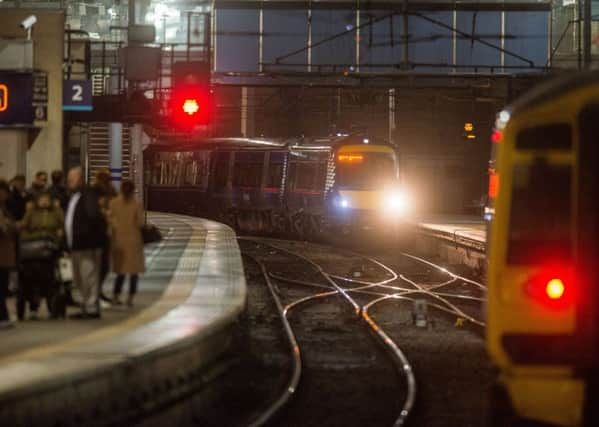'˜Breakdowns will happen, but we are getting bigger and better all the time'


The training, preparation and actual race is all-consuming. About a month ago, at the height of the criticism about our train service punctuality, I likened our transformation plans for Scotland’s railway to “running a marathon and having open heart surgery at the same time”.
While it is a pretty graphic description, it does capture the simultaneous challenges of delivering huge change programmes like building new electric lines and stations, replacing paper tickets with Smart Cards and introducing brilliant new trains – while also delivering better punctuality.
Advertisement
Hide AdAdvertisement
Hide AdThe list of improvements we are making goes on and on. It is, however, a list that we are proud of. It will truly transform rail travel in Scotland over the next three years.
We are operating more daily trains than ever before, carrying more customers than ever before and, at the same time, we are undertaking the biggest upgrade and renewal of the infrastructure since Victorian times.
And we are making good progress. We have already completed projects at Haymarket, Borders and at the Winchburgh and Queen Street tunnels – and the opening of Edinburgh Gateway is only a few weeks away.
We are moving at great pace to complete the electrification programmes on the Shotts and Edinburgh to Glasgow lines. We have also started the transformation of the line between Aberdeen and Inverness.
We are now less than ten months away from our new electric fleet running its first service between Edinburgh and Glasgow in September next year, which will be followed by our new intercity high speed train services between the seven cities the year after.
The result of all this work will be significant. We are adding 100,000 extra seats to our network – that’s 50 per cent more in the central belt, 75 per cent more between Aberdeen and Inverness, 60 per cent more between Aberdeen and the Central Belt – with 40 per cent more from Inverness.
This massive expansion in the size of our fleet, together with introducing Smart Cards and improving our stations, is all about delivering the very best for our customers.
That, however, is only half of our story. In between delivering change programmes for tomorrow’s railway, we must also reduce disruption and improve punctuality today. This is exactly what our Performance Improvement Plan is about.
Advertisement
Hide AdAdvertisement
Hide AdSometimes, however, no matter how much you plan ahead, things do still happen. The train failure outside Waverley station on Thursday morning blocked all four lines into the station and was the worst failure in the worst location at the worst time, right in the middle of the morning peak. I apologise unreservedly to each and every one of our customers who were affected.
We review every incident. We look for root causes and then we implement solutions that improve the reliability of our trains and our infrastructure.
Despite what happened last week, the reality is that the number of train incidents on our fleets is at its lowest level in 12 years. Similarly, we have invested £8 million this year in infrastructure reliability improvements and we will do so next year again.
Despite what we saw last week, we have improved our punctuality to 89.8 per cent – even though we are in what is, traditionally, the most difficult time of the year for train operators right across the UK.
I travel on our services every day and I listen and talk to our customers on stations, on trains and when we meet. I hear what they are saying. We are all working, all 7,500 of us, every single day, to improve our railway now and also for tomorrow.
Phil Verster is managing director of ScotRail Alliance